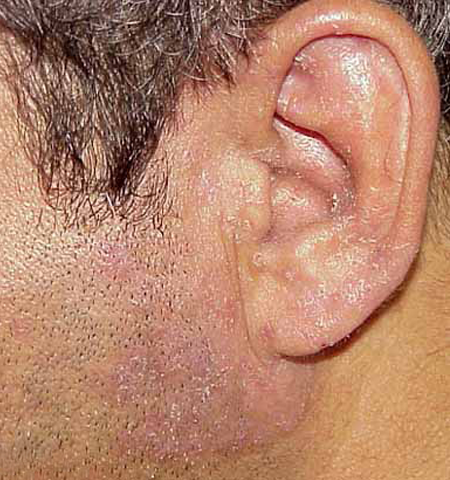allergic diseases
Types of skin Allergies :
Skin allergies refer to allergic reactions that affect the skin. These reactions can occur when the skin comes into contact with substances that the immune system identifies as harmful, leading to an exaggerated response. Common symptoms of skin allergies include redness, itching, swelling, and the development of rashes or hives. Here are some key points about skin allergies:
Types of Skin Allergies:Contact Dermatitis: This is a common form of skin allergy caused by contact with irritants or allergens. Common triggers include certain plants, metals (like nickel), cosmetics, soaps, and chemicals.
Atopic Dermatitis (Eczema) : This chronic condition involves dry, itchy skin and often runs in families. It can be triggered or worsened by allergens, stress, or environmental factors.Urticaria (Hives): Raised, itchy welts on the skin characterize hives. They can be triggered by various factors, including allergens, medications, infections, or stress.
Allergens : Common Allergens: Substances such as pollen, pet dander, mold, certain foods, insect stings, and medications can trigger skin allergies.Topical Allergens: Certain ingredients in personal care products, cosmetics, or fabrics can cause skin reactions in some individuals.
Symptoms:Itching: One of the primary symptoms, itching (pruritus) is often intense and can lead to scratching, which may worsen the condition.
Redness and Inflammation: The affected skin may become red and swollen due to the inflammatory response.Rashes or Hives: Raised, red, and itchy welts or rashes may develop on the skin.
Diagnosis : Patch Testing: Used to identify specific allergens causing contact dermatitis .Blood Tests: Allergy testing can help identify specific allergens triggering skin reactions.
Treatment : Topical Steroids: Anti-inflammatory creams or ointments can help reduce itching and inflammation.
Antihistamines: Oral medications can alleviate itching and other allergy symptoms.
Avoidance: Identifyingand avoiding triggers is crucial in managing skin allergies.
Moisturizers : Keeping the skin well-hydrated can help manage symptoms, especially in conditions like eczema.
Prevention : Identify Triggers: Knowing and avoiding allergens is key.
Use Hypoallergenic Products: Opt for personal care products and detergents designed for sensitive skin.It’s important to consult with a healthcare professional, typically a dermatologist or allergist, for an accurate diagnosis and appropriate management of skin allergies. They can recommend personalized treatment plans based on the specific type of skin allergy and its triggers.
Symptoms :

Hand Allergies :

